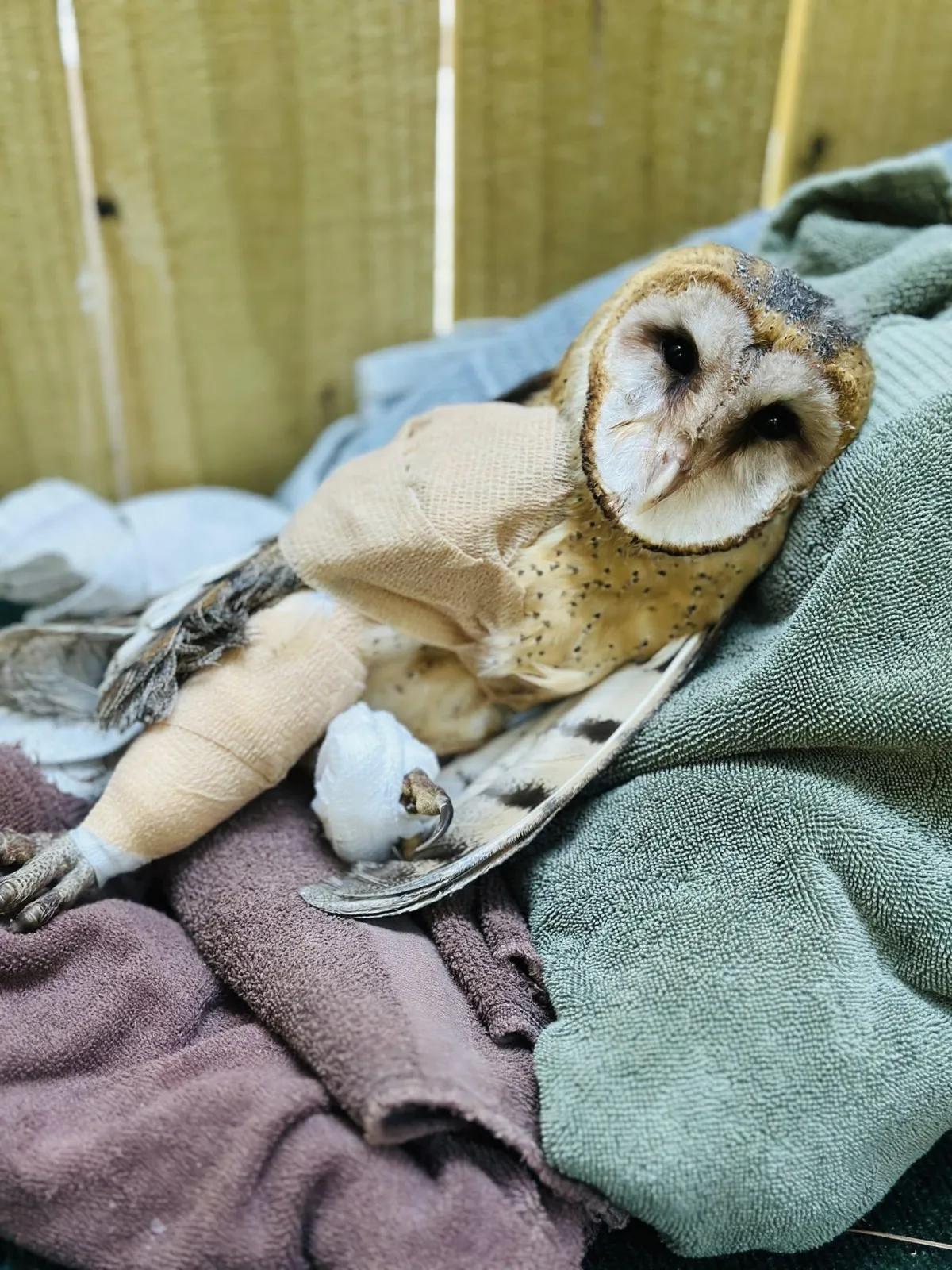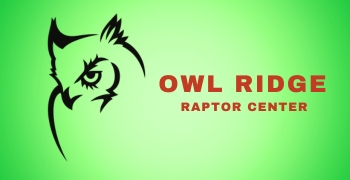
Found An Injured Bird of Prey?
If you find an injured bird of prey, contact Owl Ridge Raptor Center immediately: 865-964-8714.
While waiting for help, safely place the bird in a dark, warm, and quiet box with air holes, and keep pets and children away.
Do not attempt to feed or give it water.

Immediate Actions
Immediate actions
Keep a safe distance:
Do not try to handle the bird unless you are comfortable and it is in immediate danger on a road. A bird of prey can be dangerous even when injured due to its talons and beak.
Contain the bird safely:
If you must move it, do so carefully.
Drape a large towel over the bird, covering its head and wings.
Wrap it gently in the towel and place it in a box that is large enough for it to stand without hitting its head on the top, but not so large that it can spread its wings.
Secure the box with tape or string and punch air holes.
Provide a safe environment:
Place the box in a warm, dark, and quiet place, away from pets, children, and noise.
Do not give food or water:
Feeding the wrong food can cause injury or death, and a captured bird may not be able to eat or drink properly.

I FOUND AN INJURED BIRD OF PREY
DOES IT NEED HELP?
YES! TIME TO STEP IN
Cannot fly or run away when you approach
Unconscious
Tangled or trapped
Visibly bleeding
Limping
Flies are present on or around the bird.
In immediate danger
Call Owl Ridge Raptor Center Immediately
865-964-8714
NO, IT IS OKAY
Flying and walking normally
Run and/or flies away when you approach
No visible injuries
Wild is best! This animal is likely okay on its own.
CAPTURE TIPS
Containing and Transporting Raptors
Injured birds are frightened and may try to protect themselves. Always use thick leather gloves and eye protection—sharp beaks and talons can cause serious injury.
Capture and Containment
Approach with Caution: Gently secure the bird by throwing a large towel or blanket over it.
Use a Box: Place the covered bird into a secure cardboard box large enough for it to stand and turn. The box should have air holes and a soft lining.
Close Securely!
Transport and Care
Keep It Quiet, Warm, and Dark: During transport to Owl Ridge or a licensed rehabilitator, keep the box away from children and pets. Minimize all disturbances to reduce stress and maximize the bird's chance of survival.
DO NOT offer food, water, or attempt care. Well-intentioned home care will likely harm the bird. Our federally and state-licensed staff provide highly specialized avian care.
What Happens Next?
Once the raptor arrives, we perform a complete exam, diagnostics, and provide immediate lifesaving care.
Thank you for your compassion and dedication to wildlife! Your action makes a positive impact by supporting our work at Owl Ridge.
Do's and Don'ts of Raptor Rescue
DO
1. Contact a Professional
CALL a licensed wildlife rehabilitator immediately and follow their instructions. Owl Ridge Raptor Center: 865-964-8714
2. Safety First
Approach with caution; the animal is frightened and may defend itself.
Protect yourself: Wear gloves and long sleeves to guard against injury.
3. Contain and Secure
Contain the animal in a clean, dry, covered box lined with a towel or newspaper.
4. Provide Care and Transport
Keep it quiet, dark, and warm, away from people and pets. DO NOT peek—this adds stress.
TRANSPORT the animal ASAP! Every hour counts. Do not wait for convenience; enlist a friend if needed.
Crucial DON'Ts
DO NOT offer food or fluids—this can kill the animal.
DO NOT keep the animal any longer than is absolutely necessary. Get it to a wildlife facility immediately.
DO NOT handle the animal after it is safely secured in the box.
DO NOT attempt to administer any medical treatment (like splints or bandages).
Donate To Owl Ridge Raptor Center
An average raptor rehabilitation often costs more than $1000, with more complex cases going up from there. Your donations allow us to continue to provide high-quality care to hundreds of sick, injured, and orphaned birds each year.
© Copyright 2026. Owl Ridge Raptor Center. All Rights Reserved | Terms & Conditions
